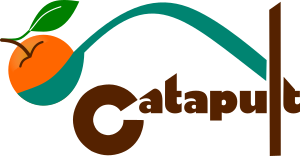What Mayonnaise Teaches Us About Scaling Manufacturing
“The biggest operational challenge brands may face when launching a new product is managing duplicate and triplicate workloads without simply adding more people”
If you're a fast-growing food brand about to expand your product line, scaling operations without scaling chaos is your next big challenge. What can often catch a team off guard is not the product development but the operational load that comes with a new product.
In my experience, the biggest operational challenge brands may face when launching a new product, whether it be in a new or existing category, is managing duplicate and triplicate workloads without simply adding more people.
That complexity compounds when your growth plan involves additional co-mans, packaging lines, or new formats. The pressure intensifies when scaling production means working with multiple manufacturing partners. When you add a second or third contract manufacturer, this shouldn’t double or triple your work. This just doesn’t add up to a profitable food business.
Instead, you should have account managers for these contract manufacturers to ensure they can keep up with production, deliver without additional headaches, and allow your supply chain to scale and adapt, without requiring a proportional increase in personnel.
This know-how comes from expertise and value added by professionals who know how to build systems to support operations, rather than duplicating existing processes just to accommodate growth. Let’s take a look at an example.
The Mayonnaise Example: Scaling Through Understanding the Systems
Recently, I was contacted by a group working on a mayonnaise who said, "Hey, we're currently making this at scale. We're ready to go. We're just looking for a co-man."
So I started talking to them about how they were making it “at scale,” and it turns out they were making five-gallon buckets’ worth and trying to scale directly to 1,000 gallons at a time.
It turns out that as you scale up, especially in the case of mayonnaise, how you scale that shearing element that generates the emulsion, that stabilizes it, is actually critical to making a functional mayonnaise.
So what we ended up doing was talking to them about how using a hand immersion blender was not directly scalable as a process element.
Instead, what they needed to do was pass it through what's called a mayo mill in order to stabilize the mayonnaise on a continuous basis so that they could scale above about 20 gallons at a time, which is more or less the limit of where that horsepower is no longer reasonable to overcome the shearing effect needed.
The lesson: When folks are starting their food business and launching a new product in their portfolio, they commonly focus on the formulation.
That’s the design by which we understand the consumer to engage with our product; at the very end.
Formulation is certainly a challenge that needs to be overcome.
But taking that formulation to a financially viable scale and presenting it over and over again, repeatably, to consumers without missing the mark, requires a whole host of other skills: from processing, packaging, and regulatory compliance, to how to approach the market in order to sell your product.
Working with distributors. Supply chain. All these other sorts of things above and beyond formulation are necessary in order to be successful in the food industry.
Catapult helps to bring together those pieces.
Catapult helps to carry you from that formulation all the way through to a product in the hands of consumers. So when you're looking for a partner to help you go the extra mile (the rest of the way), we're here to help.
“When folks are starting their food business, they commonly focus on the formulation
But taking that formulation to a financially viable scale requires a whole host of other skills”
“What worked in a small-batch setup couldn’t be linearly scaled without rethinking the process itself. ”
Its not about making more, its about making differently.
The mayonnaise story is a perfect example of why scale isn't just about making more — it’s about making differently.
What worked in a small-batch setup couldn't be linearly scaled without rethinking the process itself.
The same principle applies across operations: whether you're scaling emulsification or onboarding new co-mans, you need systems — and partners—built for the next level. Without that shift in approach, growth adds friction instead of efficiency.
The brands that succeed at scale are the ones who invest in building these systems early—so they can grow faster, smoother, and smarter.
Need help bringing your next product to market?
Catapult is your outsourced product commercialization team built for fast-growing food brands. We bring together senior industry experts to execute with speed, precision, and accountability.
With decades of experience and deep industry relationships, we’ll help you identify the right manufacturing partner and build that relationship fast.
Author: Jamie Valenti-Jordan
20+ years in food & beverage commercialization. If you’re tackling a tricky project, odds are I’ve seen it before. I’ll be sharing the things that worked here—so you can skip the 'learning experiences'.


